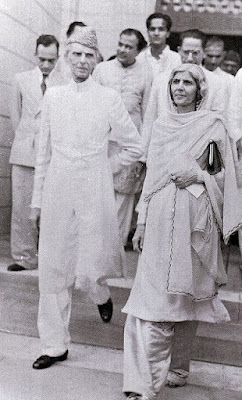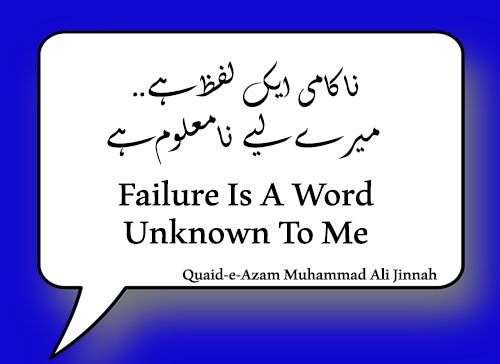Home pakistan history May 1857, Conflict for Pakistan: A Chronological Timeline (1857–1947), Part 1 Writer: Maryam KALEEM
May 1857, Conflict for Pakistan: A Chronological Timeline (1857–1947), Part 1 Writer: Maryam KALEEM
May 1857, Conflict for Pakistan:
Writer: Maryam KALEEM
The final Mughal emperor, Bahadur Shah Zafar, led the start of the War of Revolution, which the British refer to as "Mutiny."
The Red Fort was taken over by British soldiers on September 19–20, 1857, through the Lahore Gate, which Brig Jones had taken control of. Along with his family, Emperor Sultan Ahmad Zafar escaped to the tomb of Humayun.
Captain William Hodson detained Bahadur Shah Zafar, two queens, and three sons, Jawan Bakht, Mirza Mughal, Khizr Sultan, and Abu Bakr on September 22, 1857. Captain William Hodson shot two princes, and their skeletons were presented to the King.
The Military Court tried Bahadur Shah Zafar. In the end, it was decided to exile the King to Rangoon together with his two wives, Mahal and Taj Mahal, and his infant son, Jaw Bakht (now Yangon).
Bahadur Shah Zafar passed away and was buried in Rangoon (Myanmar) on November 7, 1862.
1867 Prominent Hindus fought for Hindi to take the place of the current court language, Urdu (Persian script) (Devanagari script). Sir Syed Ahmed Khan went to see Mr. Shakespeare, the Commissioner of Banaras, in response to this and told him: "Now I am sure that these united states will not work jointly in any cause. There isn't any overt antagonism between them right now. But it will rise a hundredfold in the future because of the so-called qualified citizens. He will witness it happen if he is still alive at that time.
April 29, 1870
Sir Syed wrote to Nawab Mohsin: “This is a proposal which will make Hindu-Muslim unity impossible to achieve. Muslims will never agree to Hindi and if Hindus, also following the new move, insist on Hindi, they will also not agree to Urdu. The result will be that the Hindus and Muslims will be completely separated”.
26 December 1870
Sir Syed established a Society for the Achievement Test of Indian Muslims in Banaras after his return from England. Later, the Mohammedan White euro College at Allahabad was built on the foundation of this Society.
Sir Syed decorate the Mohammedan Anglo-Oriental College's May 25, 1875, opening ceremony in Aligarh; however, classes didn't begin there until June 1 of that year. In 1921, this M.A.O. Institute was elevated to the rank of a Muslim University.
12 January 1883
Speaking on the Local Self-Government Bill as a person of the Imperial Legislative Council, Sir Syed Ahmad Khan
I am certain that the establishment of the election-only approach for the representation of different interests on local boards and district councils will bring about negative consequences that go beyond just economic concerns. Elections, in their purest form, cannot be securely implemented as long as racial, religious, and caste inequalities continue to play a significant role in India's sociopolitical life and have an impact on its citizens' decisions regarding the governance and welfare of the nation as a whole. The bigger community would completely outweigh the demands of the tight community, and the uninformed public would blame the government for enacting policies that would make racial and religious divisions more violent than they already are ever, 1
28 December 1885
March 27, 1898
The death occurred for Sir Syed Ahmed Khan.
16 October 1905...
dividing up Bengal. Due to administrative issues—Bengal was too large a province for one governor to manage—the British chose to redraw the province's borders, dividing it into two provinces, Western Bengal and Eastern Bengal and Assam. By coincidence, Assam and Eastern Bengal became the provinces with a Muslim majority, whereas Western Bengal became the province with a Hindu majority. The Swadeshi Movement was established by Hindus in opposition to this division, particularly against the newly created provinces of Eastern Bengal and Assam because they were another province with a predominantly Muslim population. The Muslims in British India was alerted by this aspect, and they became conscious enough to find their own distinct political party, which was established.
Deputation on October 1, 1906.
At a meeting with Viceroy Lord Minto, a group of 35 notable Muslim leaders from throughout the subcontinent led by Sir Aga Khan III addressed the Muslim demands that the Muslims be established as a separate society with additional interests that were not shared by other communities. They had previously suffered as a result of their inadequate representation. Lord Minto responded by assuring the Muslims that their political rights and interests as a group will be protected during the upcoming electoral process.
27 December 1906...
Jinnah, a veteran of the INC since 1906, represented the Bombay Province as a delegate at the 24th Congress session in Calcutta. But the truth remains that he supported the Muslim cause during Congress sessions despite being a member of the body.
Jinnah argued during this session that:
In the National Congress, Muslims and Hindus should be treated equally;
ii) The treatment of the Muslim community should be the same as that of the Hindu community; and,
iii) The Congress needs to support the resolution's call for the recovery of Muslim provides for the establishment (Muslim wakf rights).
30 December 1906...
The All India Muslim League (AIML) was established in Dacca (now Dhaka), with the goal of defending and advancing the social rights and interests of Indian Muslims and politely advocating on their behalf before the government. A resolution from Nawab Salim Ullah Khan Bahadur of Dacca was used to accomplish this. A different resolution proposed by Nabi Ullah established a number of provincial committees to see that this Organisation was established in each province of the Indian Subcontinent. Nabi Ullah also proposed a resolution to have this organization established in each and every province in the Indian Subcontinent. After introducing the resolution, Nawab Salim Ullah Khan Bahadur of Dacca stated that the AIML would serve as the voice of all Muslims.
20 February 1909
Jinnah backed the Muslim cause to have the right to distinct representation based on separate electorates at the national and provincial legislative assemblies in a letter to the Times of India (Bombay).
2 August 1909
At a conference of the Anjumen-e-Islam in Bombay, Jinnah proposed a motion in which he urged that the government create distinct Muslim electorates after consulting with Muslim leaders.
4 January 1910
Jinnah was chosen for a three-year term as an Imperial Legislative Council member by the Muslim lawmakers of the Bombay Legislative Council.
10 February...
Jinnah attended a council meeting of the AIML on the basis of an invitation despite not being a member of the Muslim League.
31 December 1912...
Jinnah was given a special invitation to attend the AIML Council meeting at Bank, which was presided over by Sir Aga Khan. A resolution demanding that the objective of AIML be to obtain a form of self-government suited for India, and not on the colonial model as requested by the INC, was adopted by this Council on Jinnah's proposal.
March 5, 1913...
The Muslim Worker Validating Bill was approved by the Imperial Legislative Council on a move made by Jinnah after two years of debate. This was the first Imperial Council bill that a private member had introduced. This marked the fulfillment of a major demand that Muslims had had since Sir Syed Ahmed Khan first brought it up before the British Government.
10 October 1913...
By signing the proforma of party membership, which also included testimony from Maulana Muhammad Ali and Syed Wazir Hasan, Jinnah formally joined the AIML.
July 28, 1914...
The First World War, which consumed the entire world, began in Europe. The British participated strongly in the War against the resisting Provisional Government led by Germany as the commander of the Allied Forces. The Ottoman Empire's support of the Central Powers was a challenge for the Indian Muslims. In this regard, it was viewed as an enemy by the British government. The Indian British Government discreetly made contact with several Muslim leaders out of worry for the Indian Muslims in order to prevent the annual meeting of AIML from taking place in December 1914. This was in response to the argument that hosting an AIML session would equate to acting contrary to British government interests.
April 12, 1915...
Jinnah got in touch with several Muslim leaders after joining the AIML Council. By April 12, 1915, he had managed to secure the signatures of 28 Muslim leaders on a request for the AIML session to be held in Bombay.
April 26, 1915...
Jinnah addressed a request for the AIML session to be held in Bombay to Syed Wazir Hasan, the secretary, on April 26, 1915. Thirty-three Muslim eminences have signed this request.
June 6, 1915...
A meeting of the AIML Council was conducted in Bombay to decide whether to hold the AIML session there. Suleman Haji and Ahmad, president, and vice president of the Bombay Muslim League were opposed to the decision, therefore it could not be made. As a result, the Jinnah group and group began to argue with one another in the columns of Bombay newspapers.
10 November 1915...
At a meeting of the AIML Council convened in Lucknow, it was resolved to accept an invitation from the Jinnah group of Muslim leaders to hold the AIML's next session in Bombay. By a vote of 49 to 13, the group was rejected and the council's decision was made. Jinnah thus triumphed over the Muslim League's discussions.
The Muslim leaders were urged by Jinnah in a letter published in Bombay newspapers on November 11, 1915, to put aside their differences and work together in order to demonstrate that "we are fit for the true political franchise, freedom, and self-government." He concluded his argument by saying:
9, December 1915...
According to the wishes of the group, Jinnah led a delegation of Bombay Muslim League leaders to meet Lord Willingdon, the governor of Bombay, at the Governor House. Also present were Sir Ali Imam, the law member of the Viceroy's Executive Council, Tyabji, Muhammad Hakim Abdullah Shah, Sharif Kanji, Abdul Wahid, and Suleman There were no longer any government worries about the AIML session being held in Bombay. The Government also decided that it would not object to the session's holding.
30-31 December 1915 to 1 January 1916...
A three-day AIML meeting was conducted in Bombay under the direction of Jinnah's friend. Jinnah was called to take charge of the session when there was some commotion on December 31. Jinnah agreed, and the third day's events took place in the Taj Mahal Hotel in Bombay. The fact that the session went through without a hitch demonstrated Jinnah's control over League business. Mr. Jinnah, we the Muslims of India thank you, the President said as he concluded the meeting, drawing "loud" and "continuous" applause from the crowd. Jinnah was successful in naming a committee of Muslim League members to negotiate with Congress committee members during this session. This committee was tasked with negotiating with the Congress-appointed committee, which was established on December 27, 1915, as a consequence of a resolution made by another Jinnah buddy. Because of Jinnah's charisma, Muslims, Hindus, and were able to successfully co-sponsor League and Congress meetings in Bombay at the same time. This demonstrated Jinnah's standing and the public's belief in his principles.











.jpg)






0 Comments